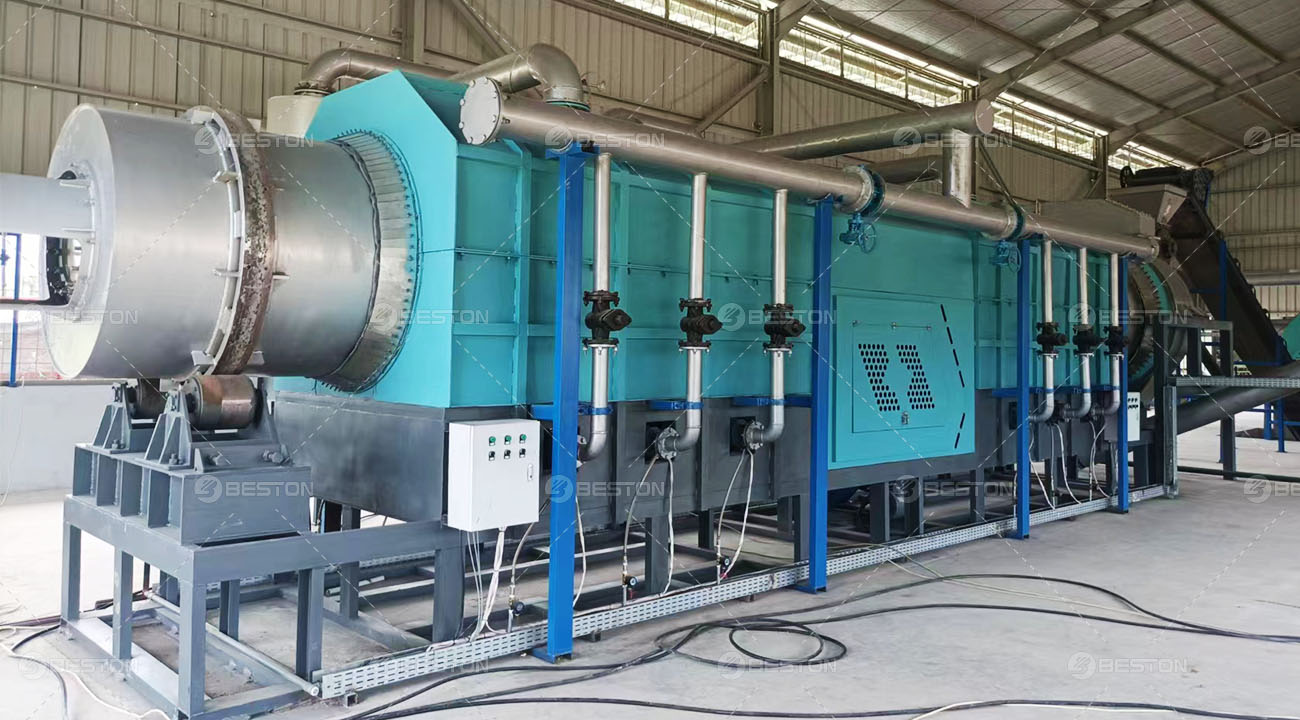Introduction
In the ever-evolving landscape of the wood processing plant industry, the introduction of wood charcoal making machines has become a transformative force. This article explores the intricacies of wood charcoal making machines and their role in expanding the wood processing plant industry chain.
Wood Charcoal Making Machine: Mechanisms and Operations
Pyrolysis and Carbonization Processes
At the heart of wood charcoal making machines lie sophisticated pyrolysis and carbonization processes. These machines leverage high temperatures and controlled environments to convert wood biomass into charcoal efficiently. The pyrolysis process ensures the breakdown of wood components, while carbonization leads to the formation of high-quality charcoal.
Automation and Efficiency Enhancements
Modern wood charcoal making machines embrace automation, revolutionizing the efficiency of wood processing. Automated temperature control, continuous monitoring, and precise regulation contribute to a streamlined production process. This not only increases output but also reduces the reliance on manual labor, optimizing overall efficiency.
Benefits of Integrating Wood Charcoal Making Machines
Diversification of End Products
The integration of wood charcoal making machines marks a shift towards diversification in the wood processing plant industry. Beyond traditional lumber and wood products, these machines enable the production of charcoal as a valuable by-product. This diversification enhances the industry’s resilience to market fluctuations and provides additional revenue streams.
Reduction of Waste and Environmental Impact
Wood processing often generates by-products that contribute to environmental challenges. Wood charcoal making machines address this issue by converting wood waste into a useful and marketable product. This not only reduces the environmental impact of wood processing plants but also aligns with sustainable practices, contributing to a circular economy.
Market Trends and Industry Dynamics
Growing Demand for Sustainable Energy Sources
The global shift towards sustainable energy sources has fueled the demand for wood charcoal produced by advanced machines. As consumers and industries prioritize eco-friendly alternatives, wood charcoal emerges as a renewable and cleaner option, further driving the market for wood charcoal making machines.
Technological Advancements in Wood Processing
Wood processing is witnessing continuous technological advancements, with an emphasis on efficiency and sustainability. The integration of wood charcoal making machines represents a key milestone in this trajectory, showcasing the industry’s commitment to adopting innovative solutions for a more sustainable future.

Challenges and Solutions in Implementing Wood Charcoal Making Machines
Regulatory Compliance and Environmental Standards
The implementation of wood charcoal making machines requires adherence to stringent regulatory and environmental standards. Striking a balance between increased production and compliance with emissions and waste management regulations is a challenge that necessitates collaboration between industry stakeholders and regulatory bodies.
Technological Challenges and Innovations
As with any evolving technology, wood charcoal making machines face technological challenges. Innovations aimed at improving the efficiency of pyrolysis, enhancing automation, and addressing environmental considerations are key focal points. Ongoing research and development are crucial for overcoming these challenges and driving innovation in the industry. However, advanced technology will inevitably lead to higher charcoal making machine price. Do a good economic analysis before investing.
Future Prospects and Conclusion
Sustainability and Growth Opportunities
The integration of wood charcoal making machines propels the wood processing plant industry into a new era of sustainability. By expanding the industry chain to include charcoal production, stakeholders open doors to growth opportunities and contribute to a more environmentally conscious and economically viable future.
Final Thoughts on Industry Evolution
In conclusion, the expansion of the wood processing plant industry chain through the incorporation of wood charcoal making machines signifies a paradigm shift. Embracing advanced technologies, diversifying end products, and addressing environmental concerns position the industry for sustained growth and relevance in a dynamic global landscape. As the industry evolves, the synergy between traditional wood processing and innovative charcoal production sets the stage for a resilient and forward-thinking sector.

Comments
No comments yet. Be the first to react!